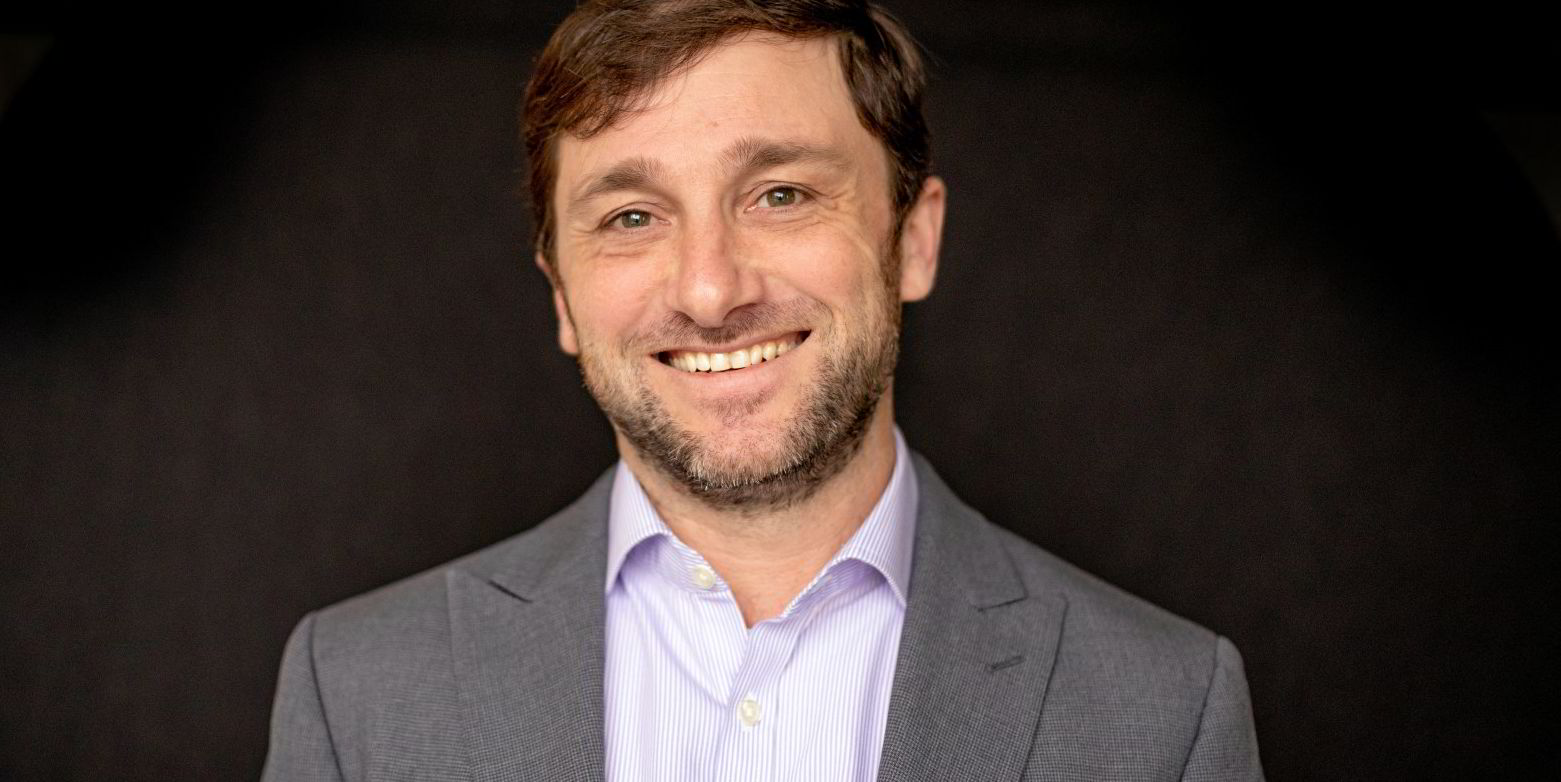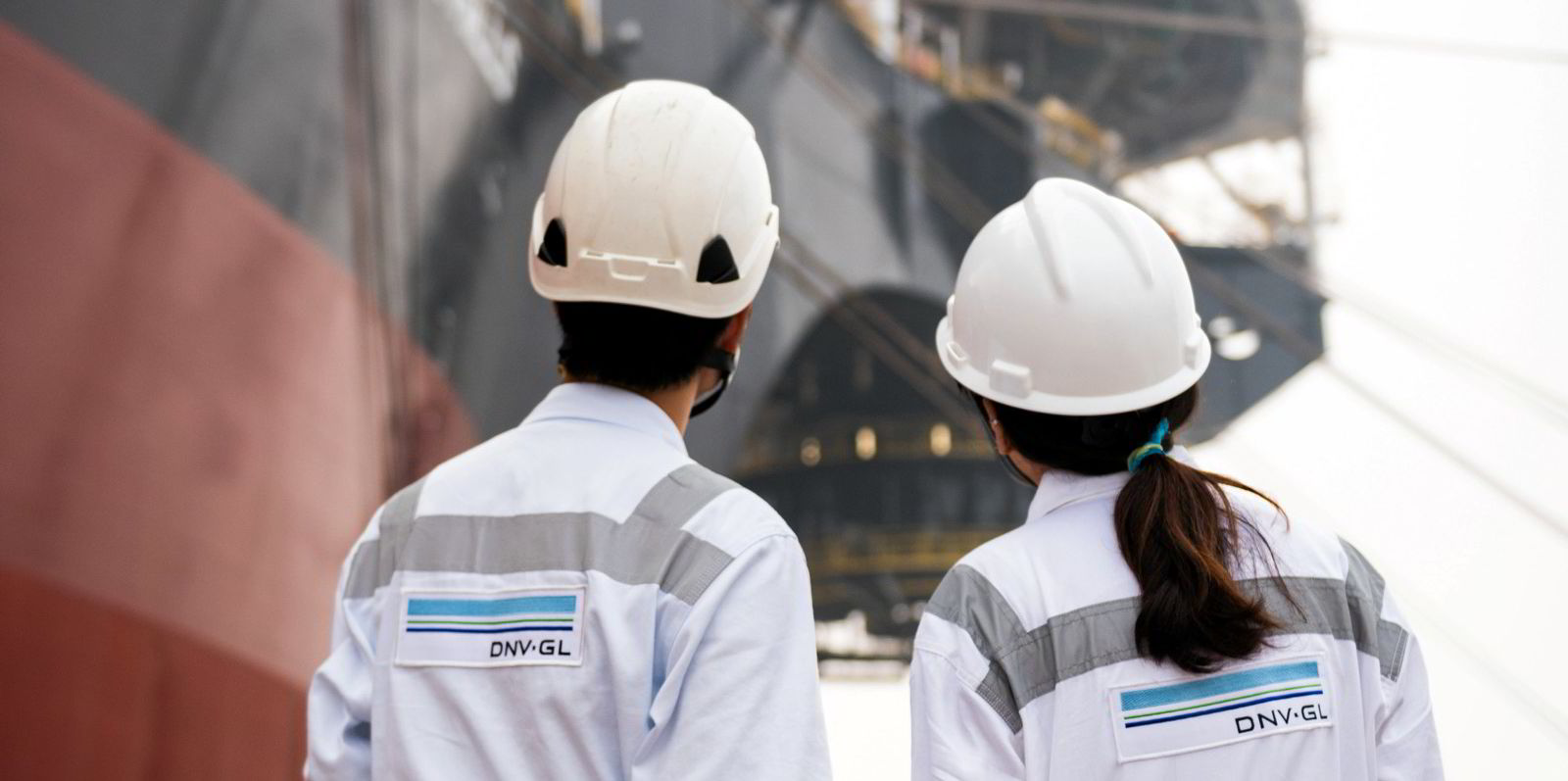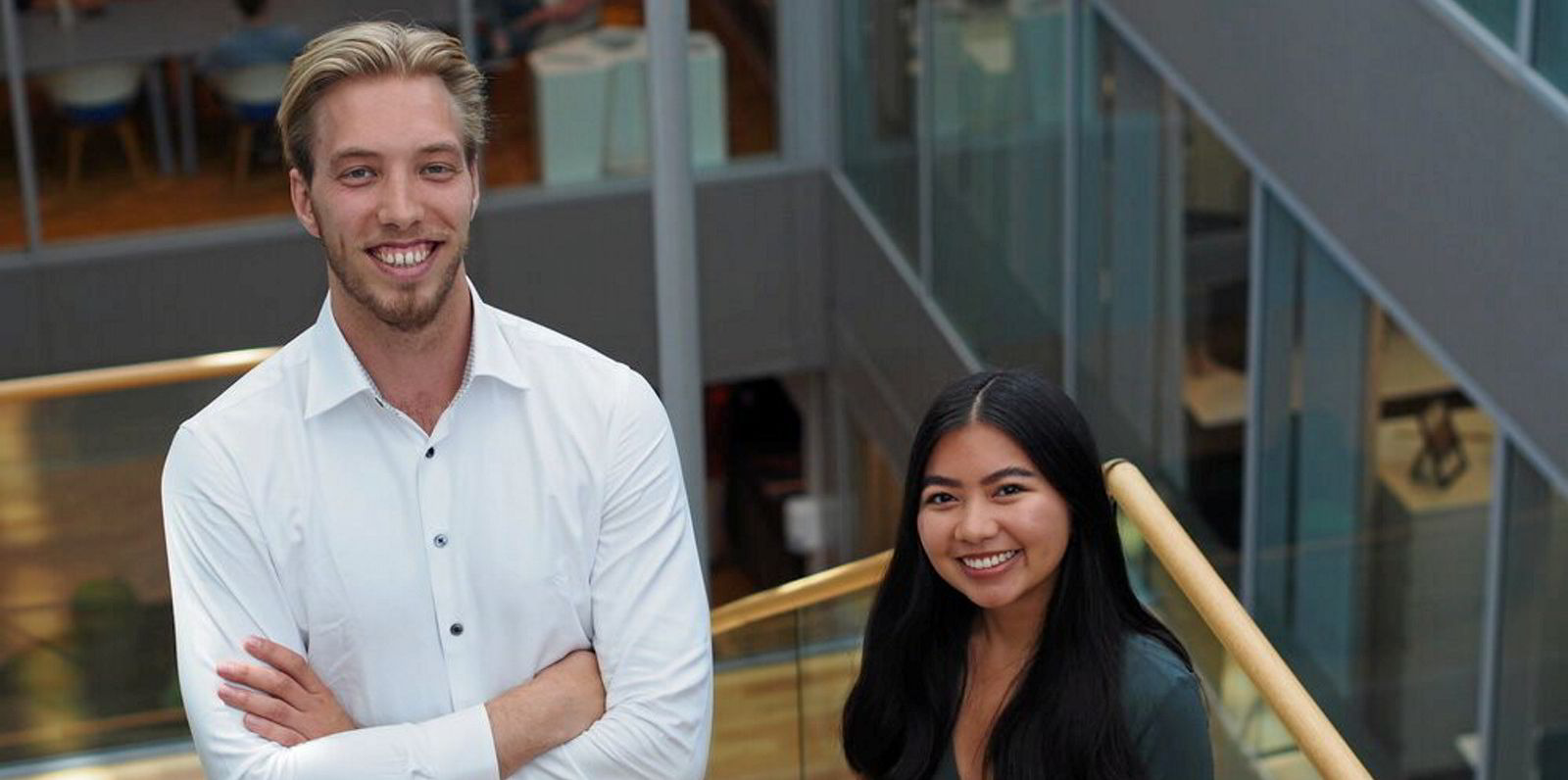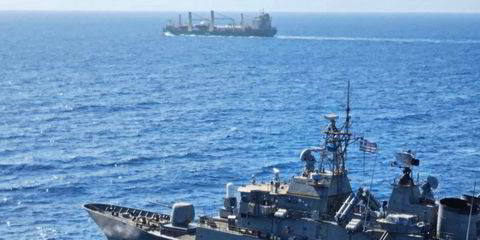Cosmo King is in fighting-talk mode when comparing ioCurrents’ third-party vessel operations monitoring services with those from makers or sellers of systems.
“We provide analytical oversight of all the types of equipment on a ship, and we don’t care who made it,” he told TradeWinds in an interview.
“While they may have expert knowledge of how that equipment is built, we suggest they don’t know how well it runs on the water.
“We get the data while the ship is running and analyse it from a neutral third-party perspective. There is no one doing that at a scale we are doing it.”
King is founder and chief innovation officer of Seattle-based ioCurrents, which he described as a firm of data scientists with maritime experts on the team.
Shipowners are under increasing pressure to report data, particularly fuel consumption and efficiency, but they also can now analyse and solve persistent or sudden mechanical problems if they can monitor and assess all of the information from different equipment supplied by multiple vendors.
King said vendors may be invested in trying to sell replacement parts and are unlikely to admit their kit is not the most efficient.
“Or would you like one solution that can assure you that we have no skin in the game in the outcome of the analysis?” he asked.
Predictive maintenance has worked in the airline industry over the last decade. King cited Delta Airlines going from 5,000 flight cancellations a year to less than 50 by adding artificial intelligence predictive learning to their maintenance routines.
“A ship is a container holding components from all kinds of systems, all interacting and all essentially trying to break themselves apart,” King said.
“The crew cannot look at a thousand gauges per second, but we can — in its full context, in a way that allows machine-learning intelligence.”
To predict and prevent mechanical failures, King said the data from hundreds of sensors on board needs to be synchronised and correlated. Then other factors, such as vibration, can be brought in from the electronics box that ioCurrents installs on a ship to see how equipment interacts.
“Having a siloed view of the equipment is a detriment to the operator because the captain drives one ship and [they and] the personnel onshore need as much information about it at any given time.”
Installation of ioCurrents’ equipment costs less than $10,000 and can be done in hours during a normal port call, according to King. A monthly subscription for automated reporting can start at a “crazy low price” that can be a stepping-stone to further analysis.
King accepts ship operators may not trust machine-learning predictions. IoCurrents can go through past data and outline what it would have alerted to see if it matches up with actual experience.
“Sometimes taking the naive outside approach helps, we don’t make assumptions,” he said. “We say to the operator: ‘this looks like an anomaly, what do you think?’
“We are not trying to run every part of the operation.
“A lot of people pay for us from fuel savings. You can save 7% fuel consumption just by taking recommendations for speed adjustments or changing the operation of the generators.”
So how does ioCurrents achieve all of this?
“We implement standards,” Kind said, adding that data is just ones and zeros to computer scientists.
“There is a mind-boggling array of standards that exist, but probably 90% of the data is in one of the 10 most common ones, and the rest will be in weird ones.
“A big part of the fun of our business is growing our support for the plethora of different standards that you find, or don’t find. You can walk onto a ship and find five generations of technology.”
Sometimes ioCurrents needs a manufacturer’s co-operation.
“We believe the shipowner has a right to that information,” he said. “We tell them what they need to ask for if we cannot immediately decode it.”
King said open standards have won out over proprietary systems in the wider computing world.
“Some vendors are less open to sharing,” he said. “In the long term, that is probably not going to be a good business choice for them.”
Cosmo King, the founder of ioCurrents, concedes that he is not an expert on shipping — or not until six years ago — but his family had a marine business and he was always around fishermen. The family business renovated a historic steamboat depot in Virginia and ran a ferry-boat service.
“Working in technology, I felt pulled back to the sea,” King told TradeWinds — and ioCurrents has hired a number of mariners, chief engineers and naval architects to bring in maritime expertise.
The company started out servicing the fishing industry in the US Pacific NorthWest, working for major companies such as Global Seas Fisheries, and then expanded into the towage and barge sectors.
From there, it has moved into deepsea shipping.
Its first deepsea involvement was with Bold Ocean Group US Jones Act company Schuyler Line Navigation Co, which operates dry bulk and tanker vessels from 3,000 dwt to panamax size.
ioCurrents has now set up its first office in London as it looks to expand in Europe. King aims to add UK citizenship and said he spends a lot of time already in Norway and France.
The company hopes to soon announce some European “blue water” pilot projects, plus contracts with wind farm operation vessels.
The vast majority of the company’s future growth will be in deepsea shipping, King told TradeWinds, with the big driver being International Maritime Organization and European fuel-efficiency regulations.
“If we can automate this information gathering, crews can do more important things,” he said.
He said every vessel has similar concerns around the operation of engines, generators and GPS, but the company is developing features for the unique subtleties that bulker, tanker or liner ships can face.
King cited cargo system work that ioCurrents undertook for one client into how and why expensive motors for bulk loading conveyor belts can fail.
“We built a tool to analyse that data that no-one had done before,” he said.
ioCurrents cannot talk about all of the partnerships it has developed, but King said it works with the likes of Kongsberg Maritime, KVH Satellite, DNV and voyage data recorder maker Danelec.







